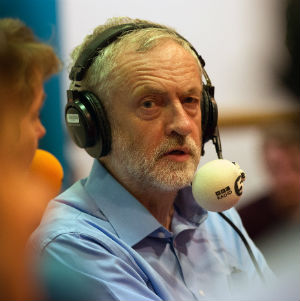Jeremy Corbyn considers gender specific public transport

The Labour leadership frontrunner has said he would consider women only train carriages, in a bid to stop sexual harassment and assaults.
Explaining why he thinks such a drastic move is necessary, the MP for Islington said that it is “unacceptable” for women to be forced to change their behaviour to avoid harassment and that more should be done to protect them.
“It is unacceptable that many women and girls adapt their daily lives in order to avoid being harassed on the street, public transport, and in other public places from the park to the supermarket,” he said.
“This could include taking longer routes to work, having self-imposed curfews or avoiding certain means of transport.
Mr Corbyn floated the controversial idea in a recent policy statement, but said that he would only push forward with the plan if he had women on board.
“My intention would be to make public transport safer for everyone from the train platform, to the bus stop to on the mode of transport itself.
“However, I would consult with women and open it up to hear their views on whether women-only carriages would be welcome – and also if piloting this at times and modes of transport where harassment is reported most frequently would be of interest.”
The idea has provoked a mixed reaction on social media, with some users pointing out that there is no mention of genderfluid or intersex travellers in the proposal.
In addition, many feared Mr Corbyn’s ideas would damage equality in the UK, where an increasing number of public services are issuing unisex options to customers.
Yesterday, the left-winger’s rival, Yvette Cooper claimed that he has “legitimised” anti-Semitic and homophobic extremists by sharing a platform with them.
Ms Cooper – who is trailing Mr Corbyn in the race to be the next leader of the Labour Party – hit out at his alleged links to homophobic activists, with whom Mr Corbyn has shared the stage with at some events.
She said: “There are some people who have quite extreme views. Homophobic, pushing homophobic abuse and pushing extremist abuse who I don’t think you should give legitimacy to by inviting to public meetings.”
However, Mr Corbyn – who has a long history of supporting LGBT rights – hit back, saying: “I have met people in the context of discussions about the Middle East with whom I profoundly disagree. I have met representatives of the Iranian government with whom I profoundly disagree with on the human rights issues.”
“My point is, if you’re to bring about a long-term peace process in the Middle East, you have to recognise that… you’ve got to talk to people you don’t like, don’t agree with, don’t particularly want to be in power, but you have to recognise they have a degree of support, and move on there.
“What’s the alternative, continuing the war?”
During an exclusive interview last month, Mr Corbyn told PinkNews that there would be economic and diplomatic “consequences” for countries with a poor approach to LGBT and human rights if he were to become Prime Minister.

